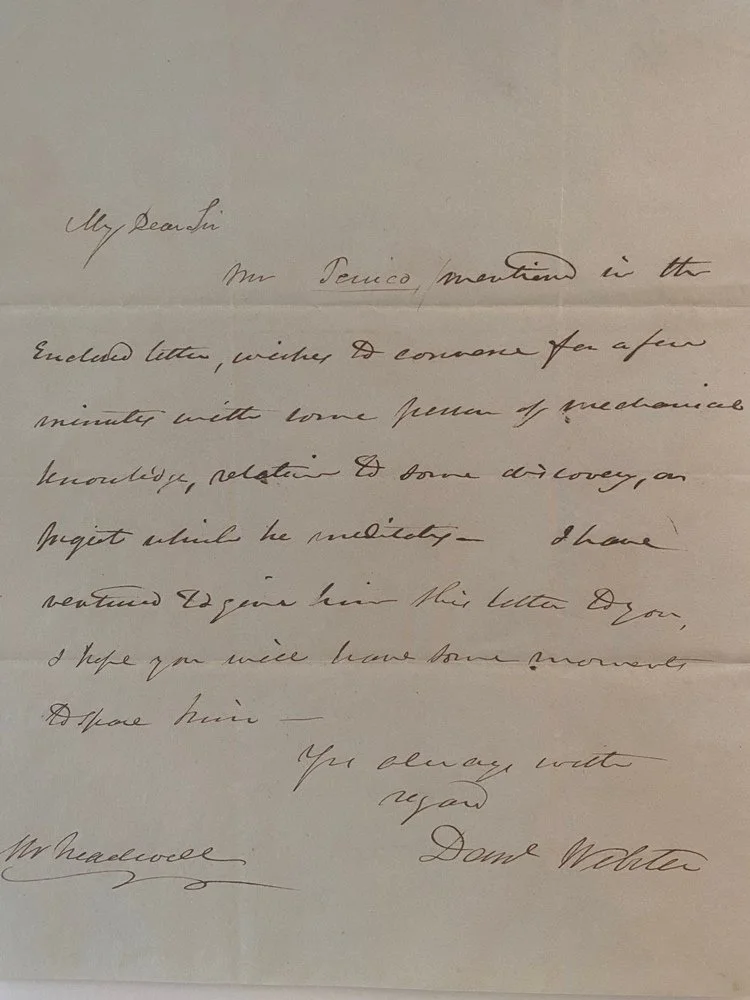
Webster, Daniel Senate giant, Sec. of State
Daniel Webster asks 19th Century inventor Daniel Treadwell to a Mr. Jerrico (sp?) who wants to meet someone with mechanical knowledge. Nice association of Webster introducing one possible inventor to another—and worth additional research into what Jerrico was working on.
Condition. Very fine. The one-page letter fills the first page of the 4to bifolium sheet. Treadwell’s name is also written on the back page in Webster’s hand and there is a file docket in another hand. Typical folds but fresh and clean with an excellent signature.
Webster was one of the nation’s greatest Senators and had a long life of public service. He served in the U.S. Congress from both New Hampshire and Massachusetts. He would represent Massachusetts in the U.S. Senate from 1827 through 1850, interrupted by service as William Henry Harrison and John Tyler’s Secretary of State. He would later leave the Senate again in 1850 to serve Millard Fillmore as Secretary of State. It was as a Senator though that he gained his greatest influence as one of the great debaters and giants who formed compromises that held the nation together prior to the Civil War.
[#4485]
Daniel Webster asks 19th Century inventor Daniel Treadwell to a Mr. Jerrico (sp?) who wants to meet someone with mechanical knowledge. Nice association of Webster introducing one possible inventor to another—and worth additional research into what Jerrico was working on.
Condition. Very fine. The one-page letter fills the first page of the 4to bifolium sheet. Treadwell’s name is also written on the back page in Webster’s hand and there is a file docket in another hand. Typical folds but fresh and clean with an excellent signature.
Webster was one of the nation’s greatest Senators and had a long life of public service. He served in the U.S. Congress from both New Hampshire and Massachusetts. He would represent Massachusetts in the U.S. Senate from 1827 through 1850, interrupted by service as William Henry Harrison and John Tyler’s Secretary of State. He would later leave the Senate again in 1850 to serve Millard Fillmore as Secretary of State. It was as a Senator though that he gained his greatest influence as one of the great debaters and giants who formed compromises that held the nation together prior to the Civil War.
[#4485]
